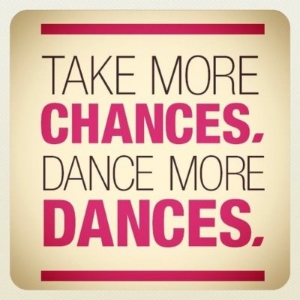How To Make a Living as a Dancer
Making a living in dance can suck! Let me be clear. Dance is the most spiritually fulfilling and rewarding endeavor. However, making a sustainable, well-paid living from dance can suck! Someone like me who has 30+ years of training, over 10 years of professional experience, AND a graduate level degree can, in some cases, still only make about as much per year as a janitor. Of course there are exceptions to every rule. For instance, professional dancers on world tours with top recording artists or in major professional performance companies are surely making more than a janitor. Full-time dance professors have also found one of the few coveted ways to make a decent living in a dance career without all the extra time-consuming hustle. But what about the rest of us? What about the remaining population of talented, hard working, and highly qualified dance enthusiasts?
Dance is one of the most instinctive and vital forms of expression in any culture. What happens when infants hear music? They dance, and not because they’ve been taught to dance. Babies dance because of an inherent instinct to do so.What happens at most cultural celebrations? Eating, and of course, dancing. How are most products marketed to youth audiences? Through dance; hip-hop dance at that. Back-to-school, car, and even technology product commercials are all flooded with dancers.
So, where's the disconnect? Why is “do you want to open your own dance studio?” the only response in discussions about pursuing a graduate degree in dance? Why can visual artists and musicians make up to 4 and 5 times more per year than dancers, respectively?Why is an art form that builds confidence, teamwork, problem-solving, body awareness, and so much more so overlooked and so under-appreciated as a profession?
The problem lies in the knowledge. There is simply just a lack of knowledge on how dance translates into a profitable career. Since our capitalist society is so driven by the bottom line, an industry that has no tangible product to sell outside of the experience of itself just doesn't make sense to most people.
Think about it. Musicians can sell their songs, in addition to lessons and instruments. Artists can sell their paintings, sculptures, and photographs, in addition to selling lessons and art supplies. Dance, on the other hand, is almost a purely experiential art form. Yes, dance lessons, apparel, and studio equipment can be sold, but beyond that, dance professionals are quite literally selling a dream.
What does that mean for you and me? It means we need to be educated on what a dance career entails, we need to be creative in how we pursue our own dance careers, and we need to educate those around us on our misunderstood friend called dance.
When dancers are educated and creative, they find more fulfilling and sustainable ways to maintain their dance career. When the general public is educated about dance careers, families are more supportive of young dance hopefuls, which in turn, can serve dance academies, college dance programs, and industry affiliated companies in the long run. In the end, everyone wins when we learn about dance.
Want more tips and ideas like this? Click the button below, and you’ll get a FREE copy of my Success Starter Kit, plus regular insight and inspiration sent directly to your inbox.


